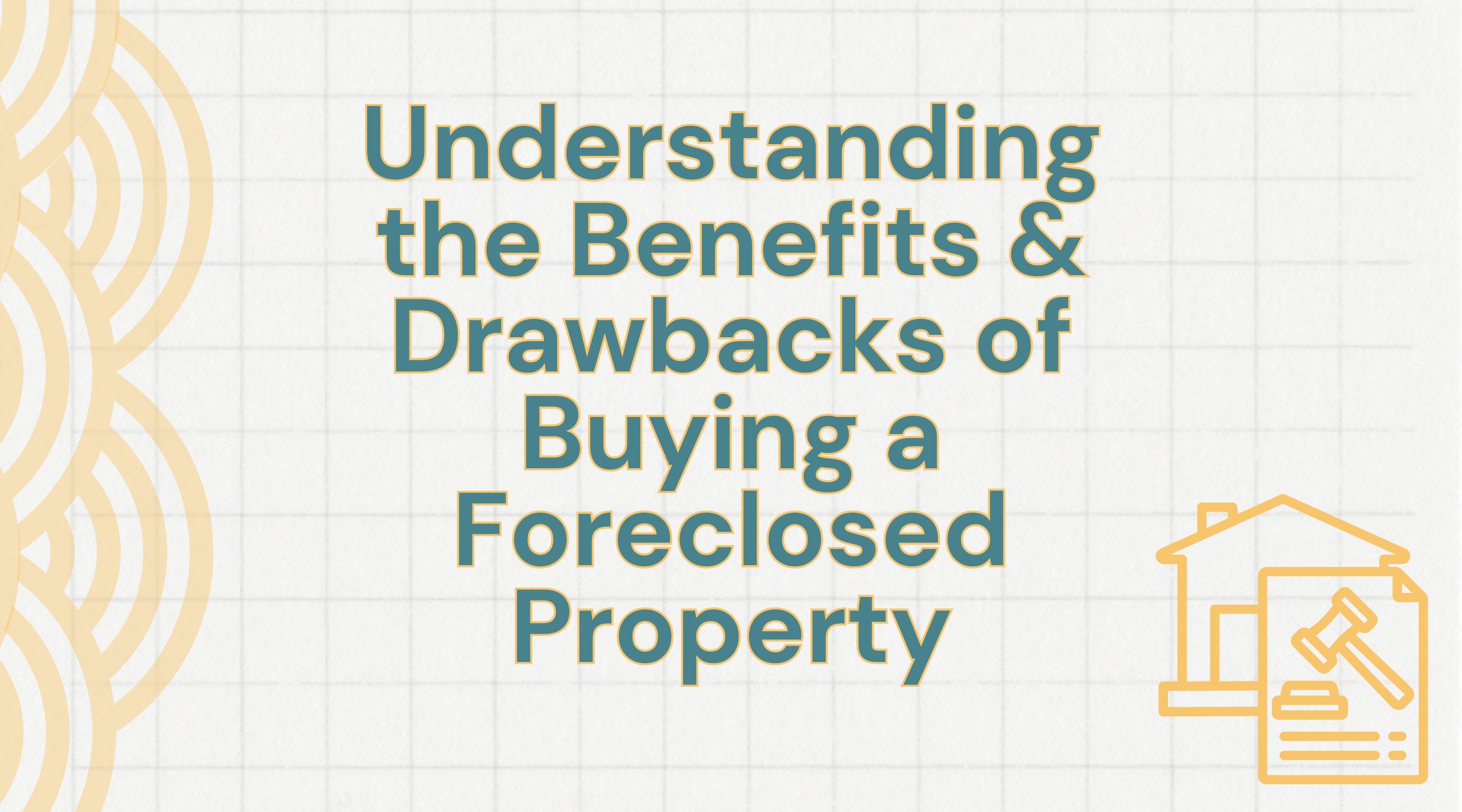Understanding the Benefits and Drawbacks of Buying a Foreclosed Property
Buying a foreclosed property can be an attractive option for those looking for a deal in the real estate market. However, it comes with its own set of challenges. This post will explore the benefits and drawbacks of purchasing a foreclosed home, helping you decide if this option is right for you.
Overview: What is a Foreclosed Property?
Definition: A foreclosed property is a home that has been repossessed by a lender because the previous owner was unable to make mortgage payments. These properties are often sold at auctions or through real estate agents.
Benefits of Buying a Foreclosed Property
1. Lower Purchase Price
Simple Explanation: Foreclosed properties are often sold below market value.
In-Depth Analysis: One of the most significant advantages of buying a foreclosed property is the potential to purchase a home at a lower price than similar properties in the same area. Lenders are often eager to sell these properties quickly to recover their losses, which can result in significant savings for buyers. This can be especially appealing in competitive markets where home prices are high.
Advantages:
- Potential for a below-market price
- Opportunity to build equity quickly
- Increased affordability in expensive markets
2. Investment Potential
Simple Explanation: Foreclosed homes can be a good investment opportunity.
In-Depth Analysis: Investors often target foreclosed properties due to their lower purchase prices and potential for renovation and resale. With the right improvements, a foreclosed home can be flipped for a profit or rented out to generate income. This makes foreclosed properties attractive to both novice and experienced real estate investors looking to expand their portfolios.
Investment Opportunities:
- Potential for flipping and resale
- Rental income possibilities
- Building equity through renovation
3. Quick Purchase Process
Simple Explanation: The foreclosure process often leads to a quicker sale.
In-Depth Analysis: Because lenders are motivated to sell foreclosed properties quickly, the purchase process can be faster than buying a traditional home. This speed can be beneficial for buyers who are ready to move in or investors looking to close a deal quickly. However, it’s important to note that while the sale process may be faster, the steps leading up to the purchase (such as inspections and financing) still require careful attention.
Benefits:
- Faster closing process
- Reduced time on the market
- Efficient acquisition for ready buyers
Drawbacks of Buying a Foreclosed Property
1. Property Condition
Simple Explanation: Foreclosed homes may require significant repairs.
In-Depth Analysis: One of the biggest risks of buying a foreclosed property is the condition of the home. These properties are often sold “as-is,” meaning the lender is not responsible for making any repairs or improvements before the sale. The previous owners may have neglected maintenance or even caused damage before leaving. Buyers need to budget for potential repairs and be prepared for the possibility of hidden issues that may not be immediately apparent.
Challenges:
- Potential for significant repairs and renovations
- Lack of maintenance history
- Risk of hidden damage
2. Limited Inspection Access
Simple Explanation: Buyers may have limited opportunities to inspect the property.
In-Depth Analysis: Unlike traditional home sales, where buyers can conduct thorough inspections, foreclosed properties may have restricted access for inspections before purchase. This limitation can make it difficult to assess the true condition of the property, leading to unexpected costs after the sale. Buyers should be cautious and, if possible, try to arrange an inspection to avoid costly surprises.
Limitations:
- Restricted inspection opportunities
- Increased risk of purchasing unseen issues
- Uncertainty about the property’s condition
3. Complicated Purchase Process
Simple Explanation: Buying a foreclosed home can involve more complex paperwork and procedures.
In-Depth Analysis: The process of purchasing a foreclosed property can be more complex than a traditional home purchase. It often involves dealing with banks, navigating auctions, or understanding the legal aspects of foreclosure. Additionally, the process can vary significantly depending on whether the property is purchased at auction, through a real estate agent, or directly from the bank. Buyers should be prepared for the potential challenges and seek professional advice if necessary.
Complications:
- Complex legal and financial procedures
- Dealing with banks and auctions
- Potential for extended closing periods
Conclusion
Buying a foreclosed property offers both benefits and drawbacks. While the potential for a lower purchase price and investment opportunities can be attractive, the risks associated with property condition, limited inspections, and a complicated purchase process must be carefully considered. If you’re prepared for the challenges and do your due diligence, purchasing a foreclosed home in Central Florida or other regions can be a rewarding experience.
Other Related Topics
If you found this information helpful, you might also be interested in learning about how to finance your first investment property, the impact of rising construction costs on real estate, or understanding real estate market cycles. Stay tuned for more insightful real estate posts!
Contact us today or visit our Instagram | Facebook .

Your writing has a way of resonating with me on a deep level. I appreciate the honesty and authenticity you bring to every post. Thank you for sharing your journey with us.